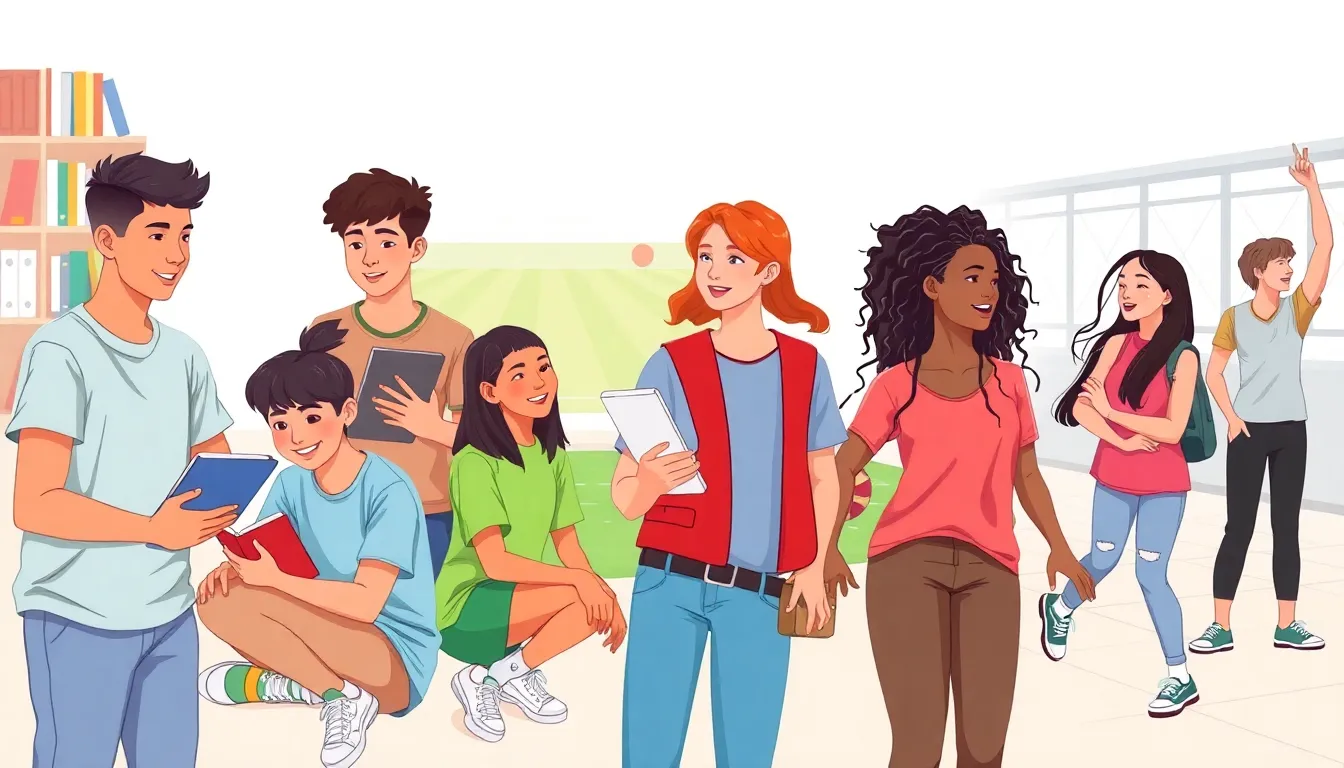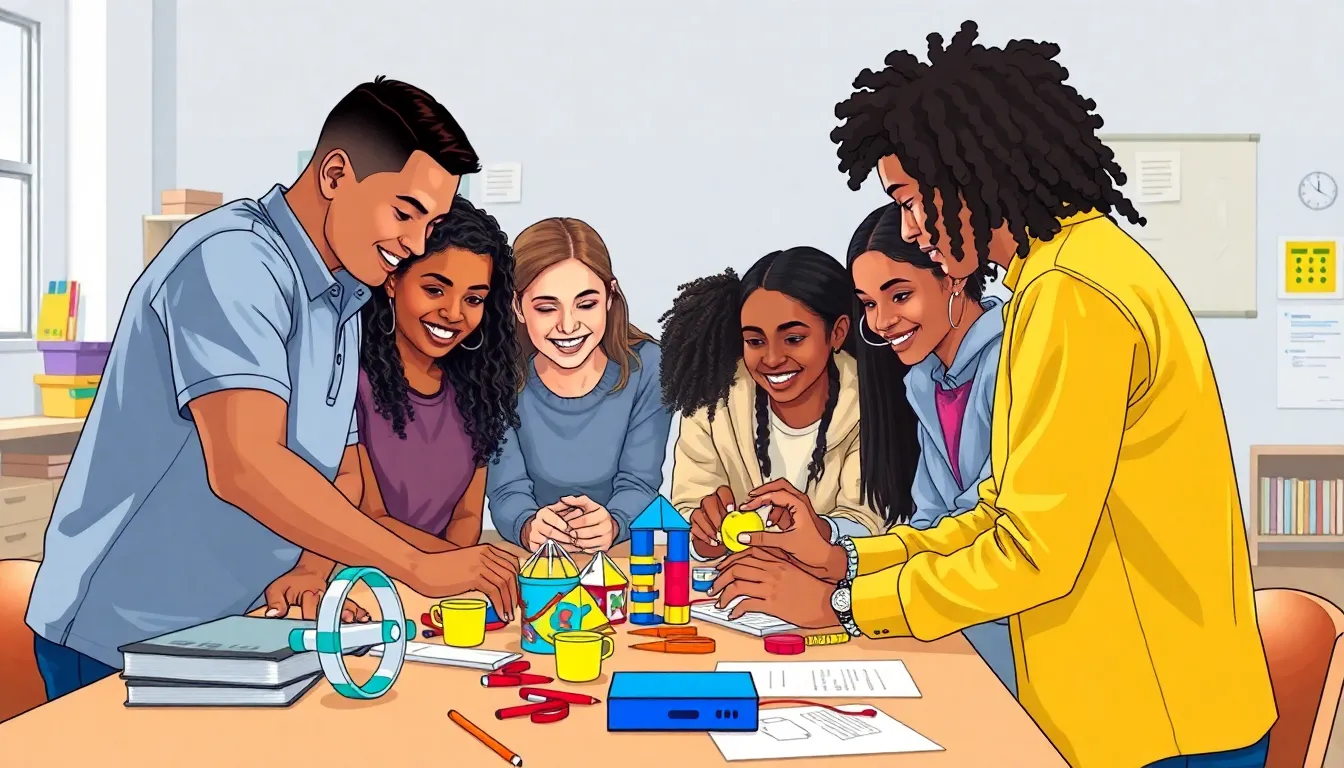Table of Contents
ToggleIn a world where TikTok dances and video games reign supreme, youth programs are the secret sauce that can turn couch potatoes into community leaders. These programs offer more than just a way to keep kids busy; they unlock potential, spark creativity, and help build skills that last a lifetime. Think of them as the superhero capes for the next generation, empowering young people to tackle challenges with confidence and flair.
Overview of Youth Programs
Youth programs serve as vital resources for young individuals, particularly in an era influenced by TikTok and video games. These initiatives strive to engage youth in meaningful activities and personal development. By participating in structured environments, individuals enhance their social skills, foster friendships, and build networks.
Various types of youth programs exist, ranging from arts and sports to academic and mentorship initiatives. Arts programs encourage creativity through workshops and performances, while sports initiatives promote teamwork and physical fitness. Academic programs offer tutoring and enrichment activities, ensuring students succeed in school. Mentorship initiatives connect youth with adult mentors who provide guidance, expanding horizons and career paths.
Statistical evidence highlights the significant impact of these programs. Research indicates that youth involved in structured programs are more likely to graduate high school, with studies showing a 20% increase in graduation rates. Participants in sports programs demonstrate improved health and wellness, as evidenced by a 15% decrease in obesity rates among regular attendees.
Community organizations often support the implementation of youth programs, tailoring them to meet specific needs within the local population. Funding from government and non-profit sources ensures these programs remain accessible, allowing more young people to benefit. Additionally, volunteer involvement enriches the experience, bringing diverse perspectives and expertise to the programs.
Youth programs play a crucial role in empowering young individuals. They offer opportunities for engagement, skill development, and personal growth, cultivating confident and capable future leaders equipped to navigate the complexities of modern society.
Types of Youth Programs


Youth programs come in various forms, each tailored to meet the diverse needs of young individuals. The main types include educational and recreational programs, both providing essential opportunities for growth.
Educational Programs
Educational programs target learning outcomes, enhancing academic skills and personal development. These initiatives include tutoring services, STEM workshops, and college preparatory courses. Young participants gain vital knowledge and experience through hands-on activities and collaborative projects. Reports indicate that students engaged in structured educational programs tend to achieve higher grades and demonstrate improved critical thinking abilities. Organizations often collaborate with schools to offer these programs, ensuring they align with community needs and educational standards.
Recreational Programs
Recreational programs focus on physical activities and social interaction. These initiatives include sports leagues, dance classes, and outdoor adventures. Participants build teamwork and leadership skills while promoting physical health through active engagement. Additionally, studies show that involvement in recreational programs fosters friendships and social networks among peers. Community centers and local organizations frequently sponsor these programs, making them accessible and inclusive for all youth. By offering diverse recreational opportunities, these programs support overall well-being and personal growth.
Benefits of Youth Programs
Youth programs offer numerous advantages that contribute to the growth and well-being of young individuals. These benefits include personal development and community engagement.
Personal Development
Youth programs enhance personal development, leading to improved self-esteem and confidence. Participants acquire essential skills such as problem-solving, communication, and teamwork. They also receive mentorship, which fosters resilience and goal setting. Engaging in various activities encourages creativity and critical thinking. Research shows that young people involved in structured programs demonstrate higher academic performance and increased motivation. Young participants learn to navigate challenges effectively, preparing them for future endeavors. Programs provide a supportive environment where youth can explore their interests and develop their identities.
Community Engagement
Community engagement thrives through youth programs, creating stronger connections between participants and their surroundings. These programs encourage volunteering and participation in local events, instilling a sense of responsibility. Involvement in community activities fosters teamwork and collaboration among peers. Young people often form lasting friendships as they work together towards common goals. Moreover, programs highlight the importance of civic engagement, teaching youth about social issues and advocacy. Evidence indicates that engaged youth are more likely to become socially responsible citizens. Building relationships with local organizations strengthens community ties and promotes inclusivity.
Challenges Facing Youth Programs
Youth programs encounter significant hurdles that can impact their effectiveness. Understanding these challenges is essential for their ongoing support and development.
Funding Issues
Funding challenges significantly affect the sustainability of youth programs. Limited budgets often restrict program expansion and quality. According to a report by the National Youth Leadership Council, 75% of youth organizations cite funding shortages as their primary obstacle. Nonprofits may struggle to secure grants, making them reliant on inconsistent donations. Competing interests for limited public resources further complicate these efforts. Local governments frequently prioritize other initiatives over youth engagement, leading to the closure of vital programs. Addressing these funding issues is crucial for maintaining accessible and impactful youth initiatives.
Accessibility Concerns
Accessibility remains a pressing concern for youth programs. Geographic disparities often limit participation, particularly in rural or underserved urban areas. A study published by the Pew Research Center shows that 60% of youth in low-income neighborhoods lack access to quality programs. Transportation barriers also hinder involvement for many young individuals. Additionally, program schedules may not align with family commitments, reducing participation rates. By enhancing accessibility, communities can ensure that all youth have the opportunity to benefit from structured programs, allowing them to thrive and develop essential skills.
Youth programs are essential in shaping the future of young individuals. They provide opportunities for personal growth and community engagement while fostering essential skills that prepare youth for life’s challenges. As these programs adapt to the evolving needs of society, their impact becomes even more significant.
Addressing funding and accessibility challenges is crucial for sustaining and expanding these initiatives. By ensuring that every young person can participate in these programs, communities can cultivate a generation of confident leaders ready to contribute positively to society. Investing in youth programs is an investment in a brighter future for everyone.





